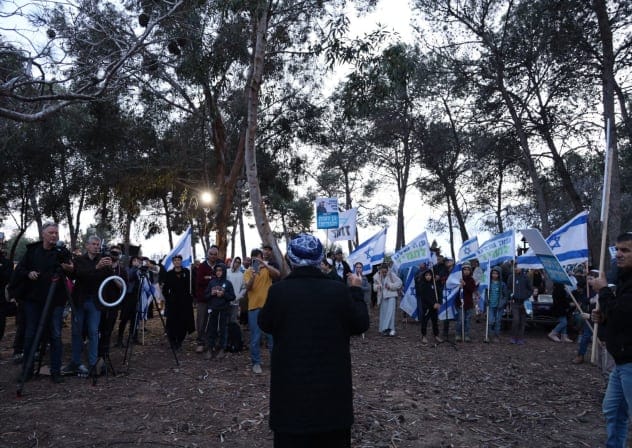Woman hospitalized after bus crashes into store in Ramat Gan, injuring 10
A bus crashed into a building in Ramat Gan on Friday morning, leaving a woman in critical condition. MDA paramedics rushed her to Tel Aviv's Ichilov Hospital for treatment.

A bus crashed into a building in Ramat Gan on Friday morning, leaving a woman in critical condition. MDA paramedics rushed her to Tel Aviv's Ichilov Hospital for treatment.




Former defense minister Yoav Gallant responded also the newly published documents in a post on X, accusing the prime minister of lying about the activities of the defense establishment.

The documents, spanning from February 2023 to an hour before attack, show how Israel's defense echelon misread Hamas’s intentions, and characterized the terror group as deterred.

Organizers said bereaved families, families of hostages, reservists, and war-wounded joined the march to express solidarity and press for a “security-first” approach to permanent Jewish presence.

The proposal is divided into five chapters and centers on improving conditions for both teachers and students through an investment of billions of shekels in the education system.

Seven MKs voted in favor of the bill, and five MKs opposed it. It will need to pass three readings in the Knesset’s plenum to become a law.

According to experts, the Arab economy in Israel is plagued by a lack of Hebrew skills, high crime rates, and subpar public transportation. A recent event sought to find a solution.

"We noticed that they were unconscious, without a pulse and not breathing,” MDA paramedics recalled of the scene. “We began performing advanced CPR and administering medication.

The families cited a US civil lawsuit that alleges the project is linked to Bashar al-Masri, a Palestinian-American businessman accused in court filings of aiding Hamas.

The inauguration of Maccabi Barcelona is particularly significant as it reflects the solidarity of a growing Jewish community in the face of increasing global antisemitism.

Rising the ranks in Euroleague, Jimmy Clark's recent buzzer-beater victory shot led to Partizan Belgrade's defeat at the hands of Maccabi Tel Aviv.
